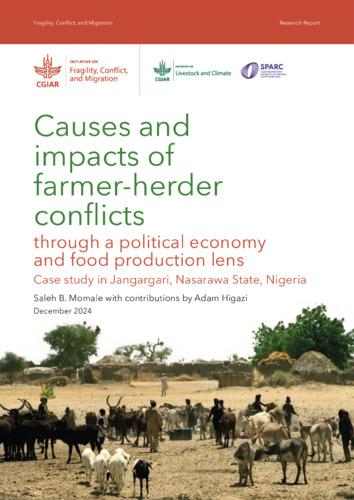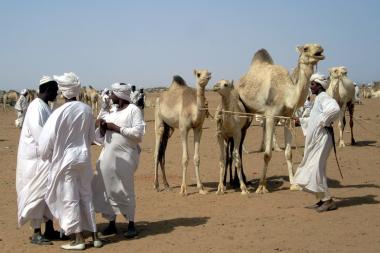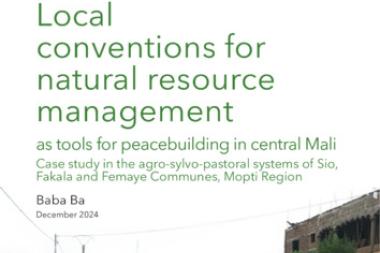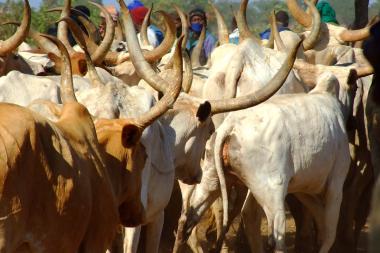SPARC partner publication
Causes and impacts of farmer‑herder conflicts through a political economy and food production lens: Case study in Jangargari, Nasarawa State, Nigeria
This study aims to deepen the understanding of land tenure in areas where farmers and pastoralists interact, to help document the root causes of conflicts between farmers and herders.
Publisher CGIAR
This research was carried out through the International Livestock Research Institute (ILRI) as part of the CGIAR Research Initiatives on Fragility, Conflict and Migration and Livestock and Climate UK‐funded programme, Supporting Pastoralism and Agriculture in Recurrent and Protracted Crises (SPARC).
Unlike many previous studies which are wide, this one focuses on a single location. The focus is on Jangargari, a political ward in Awe Local Government Area (LGA) of Nasarawa state, North Central Nigeria. Jangargari ward, and Awe LGA, are located in the southeastern part of Nasarawa state, on the boundary with Benue State.
Jangargari is heterogeneous in population: it is multi‐ethnic, multi‐religious, and has farmers and herders as well as other livelihood groups.
Findings include:
- The pastoral production system in the area is based on the mobility of animals and herders, with white humped zebu cattle (called Bunaji in the Fulfulde language) as the dominant livestock in the area.
- These Bunaji cattle are primarily owned and herded by Fulani pastoralists. The herds are taken out for daily grazing and when necessary on short‐range migration and long‐distance migration, although long‐distance migration has decreased due to conflicts and insecurity.
- Men own most of the cattle, while women own more goats. Nasarawa State, within which Jangargari is located, is estimated to have two million cattle, 4.7 million goats and two million sheep based on information from the State Ministry of Agriculture.
- The traditional livestock herding practices of the Fulani herders are changing, with younger herders taking more control of raising livestock, with less oversight from elders than in the past. There is less migration of family units and more migration by male herders.
- Women’s economic roles are diminishing due to pressure on dairy production and pastoralists are facing challenges such as scarce grazing land, disrupted migration patterns, and conflicts over land use.
Read the full report here.

Credit Image by CGIAR


